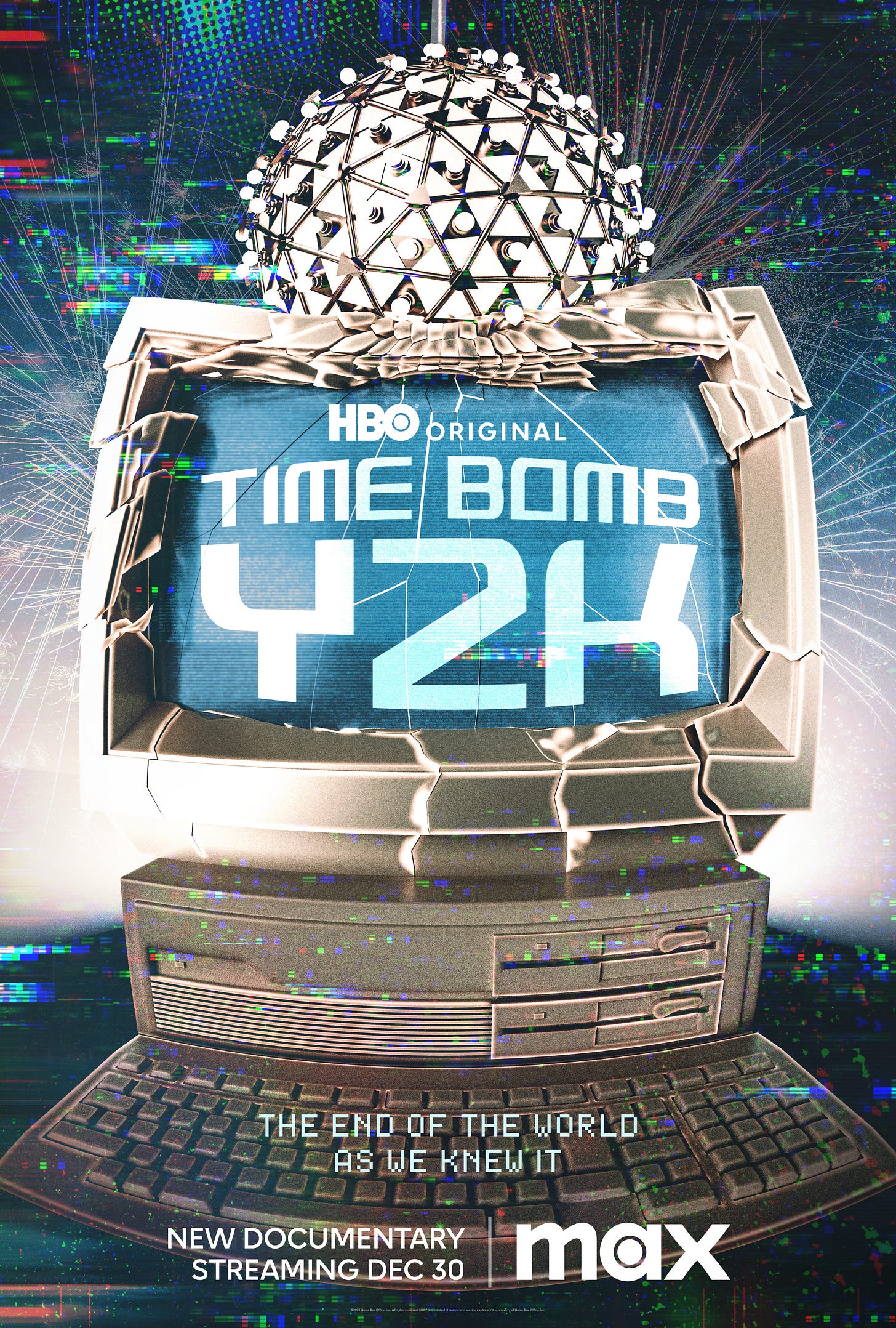'Time Bomb Y2K' is a cinematic essay about the apocalypse that didn’t happen
The year’s final HBO documentary masterfully uses archival footage to revisit the lead-up to new years’ eve in 1999- various aspects of which prefigured the millennium to come
If you’re a certain age, you almost certainly remember the Y2K Problem. Back when we were “partying like it was 1999” — because it was — there was the fear in the back of all of our heads that maybe, possibly, the world could end.
That was because of a computer bug, from the early days of computing, that meant some computers would flip the calendar, at the end of 1999, back to 1900. And this could cause widespread crashes, outages, or — in the worst possible scenario — accidental discharges of weapons systems.
The Y2K issue, of course, was solved, without any major problems when the clock turned to 2000. And now, just in time for New Year’s Eve 24 years later, there’s a documentary about it called Time Bomb Y2K, which debuts on HBO and Max on December 30, after a festival bow earlier this year.
The filmmakers, Marley McDonald and Brian Becker could have very easily just made a movie, looking back from the present, in which the technology experts of today analyze what happened. But their actual approach is much more fascinating.
The documentary is more of a cinematic essay, assembled entirely from archival footage. Some of it is news, some are talk shows, and also quite a bit of cultural ephemera as well. There are plenty of nostalgia kicks here, whether it’s the outdated computers and TV graphics or the presence of long-gone newsmen like Peter Jennings.
But there is also a ton of stuff that prefigured events in the future. There’s a lot of proto-COVID stuff, including conspiracy theorists and even militia types interpreting boilerplate government statements as something much more nefarious, in the process turning scientists and bureaucrats into villains for no good reason. Yes, the whole thing was called a “hoax,” even though it wasn’t.
Peter de Jager, the computer engineer who is credited with discovering the problem, was sort of the Anthony Fauci of that period, known as a frequent media figure during the run-up to Y2K, and was vilified in some quarters as a doom monger. CNN’s Bill Press is seen railing against him on television.
We also learn that Y2K fears caused a spike in gun sales, though, in America, what events don’t cause that? Religious grifters like Jerry Falwell and Jack Van Impe also tried to wet their beaks. And of course, there was fear that terrorists would use either the Y2K bug or the large gatherings for a major attack on the U.S., although those predicting that were merely off by about two years.
Some of the pop culture stuff is rather fun. Because everything in the ‘90s had to be a disaster movie, Y2K: The Movie was produced as a quickie in 1999. We see an impossibly young Matt Damon, interviewed at a junket for The Talented Mr. Ripley in the fall of 1999, about how he hopes the nuclear stockpile can be safeguarded. We see people pulling into a Phish concert in Florida, which is where I was on December 31, 1999.
As for the politicians, this is an extremely rare documentary that shows Bill Clinton in 1998 and 1999 and does not touch in any way whatsoever on impeachment or Monica Lewinsky.
There’s plenty of Al Gore as well. I don’t feel like anyone ever told “Al Gore invented the Internet” jokes until he was running for president in 2000. I once attended a dinner where the keynote was delivered by Vint Cerf, who actually invented the Internet (or rather, TCP/IP), and he responded to one of those jokes by talking about how Gore, as a senator, really did play a key role in securing the funding that made the growth of the Internet possible.
Overall, the editing is fantastic, and the filmmakers did a great job both finding great footage and putting it together. I was reminded a bit of another documentary about a memorable ‘90s moment- June 17, 1994, Brett Morgen’s ESPN film about the O.J. Simpson chase and other events taking place the same day.
The biggest lesson of all? The solving of the Y2K Problem was an example of experts and government bureaucrats coming together to solve a big problem, and succeeding at it. Y2K was solved and the world didn’t end; it was just a shame that problem-solving got so much harder, once the 2000s arrived.




